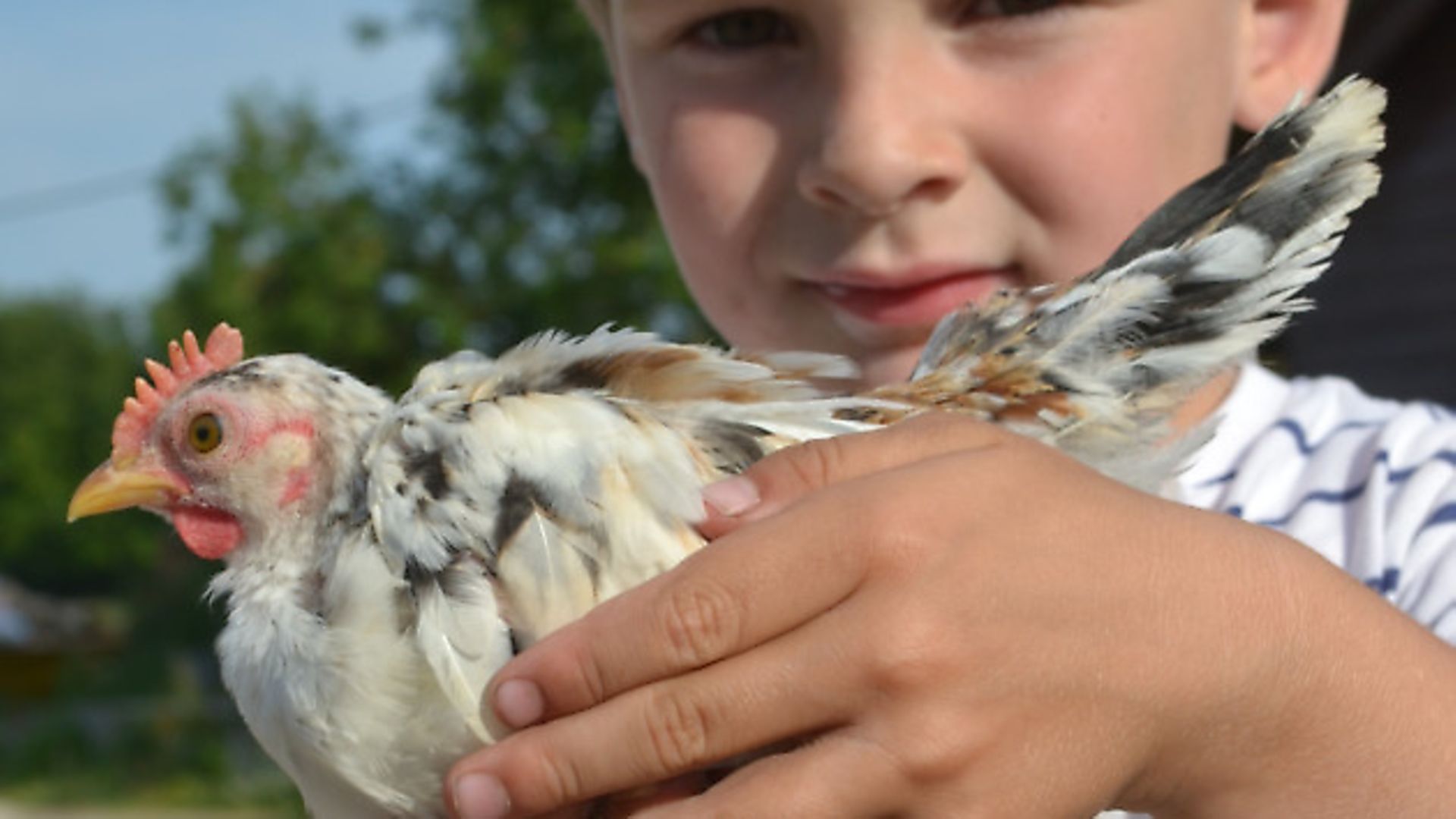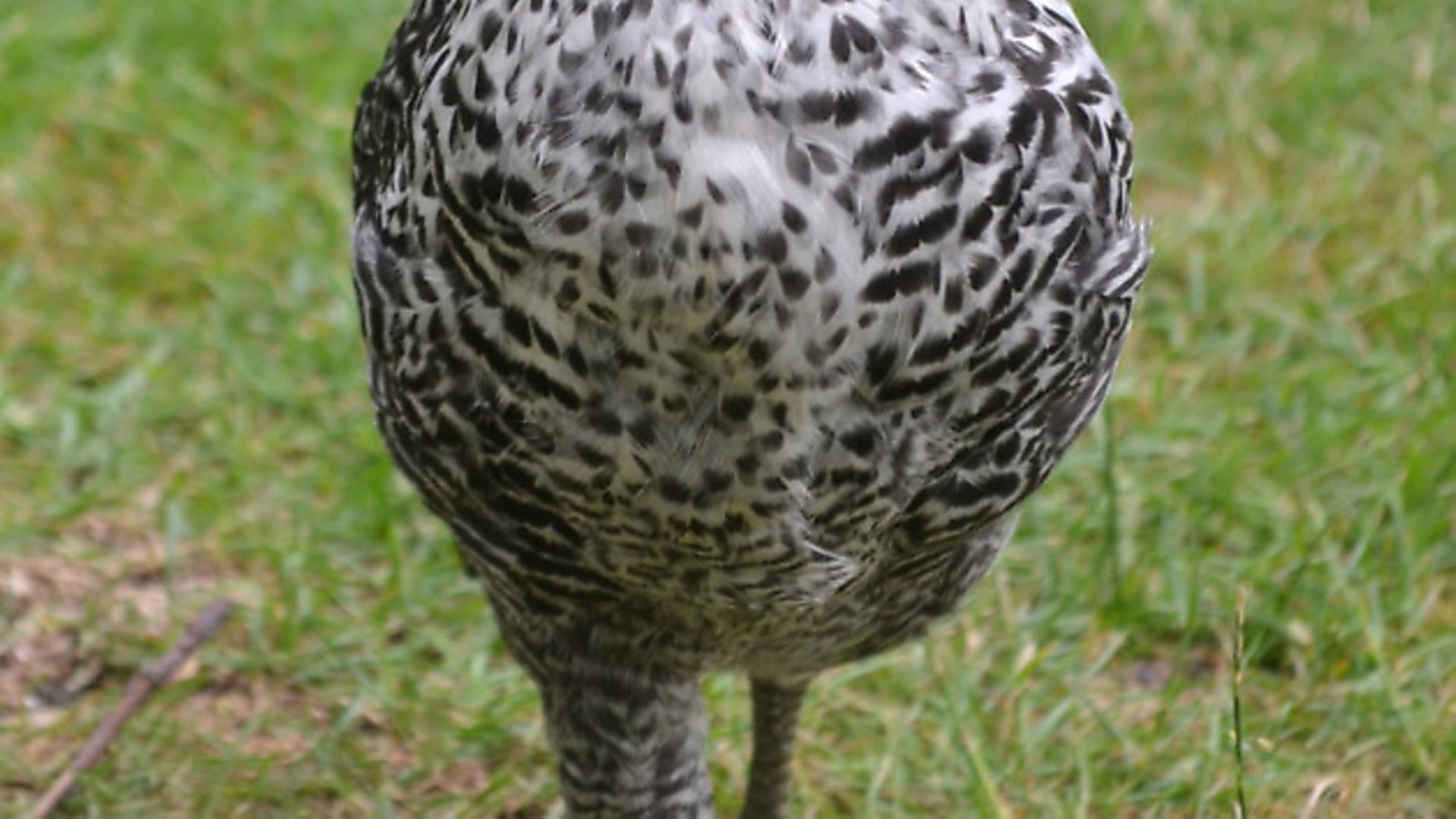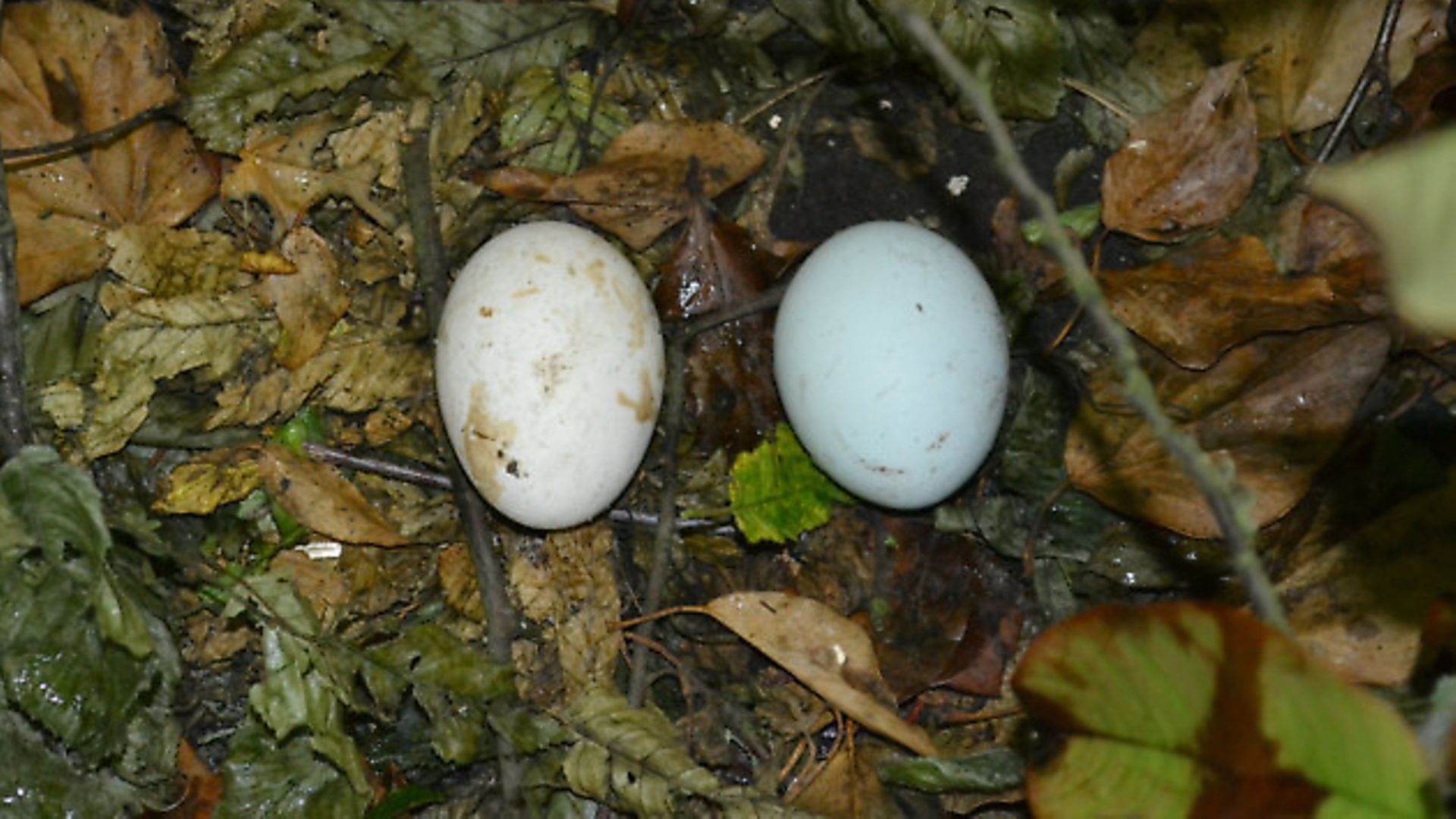Charlotte Popescu discovers a new breeder has set up just down the road, and buys some birds from her

I have had a couple of hens pass away and so was thinking of getting a couple of new birds. I happened to see a notice in our local village shop: Chickens for Sale. A quick phone call revealed that there was a new breeder just setting up only two miles up the road. So I got on my bike and paid Sarah a visit. She had a number of growers (teenage chicks) and I chose a Rhode Bar and an Araucana cross (these are always good value as they can make brilliant Mums and will lay blue eggs!)
I brought my acquisitions back home in a cardboard box strapped on the back of my bike. Safely installed in their hutch and run they really enjoyed their first taste of grass! Sarah is rapidly expanding her chicken business as it has got off to a flying start with high demand and it will be known as Charlton Chickens. She will have all sorts of breeds available from large to small. The smallest breed in the world, the Serama, is also available from Sarah (here is the little cockerel pictured with Sarah’s son Harry).
My favourite chick

My chicks are all growing up quickly. My favourite this year is my silver-pencilled Fayoumi. I am pretty sure she is a pullet but as she is my only Fayoumi I have nothing to compare her to. Fayoumis come from Egypt originally. They are very quick to mature and meant to be hardy. I tried some hatching eggs once before and ended up with three gold-pencilled Fayoumi cockerels! I believe Fayoumis lay well and being a light breed eggs will be white. They are a relatively new breed as they weren’t introduced to the UK until 1984.
My buff-laced Wyandotte decided her chicks could fend for themselves when they were five weeks. She actually started laying eggs again while still looking after them, in the nest where they were all sleeping, which is quite unusual.
Laying well

My hens are all continuing to lay well. I am going to try and increase my dark brown egg layers, namely the French Copper Blue and Black Maranses as I find that the dark coloured eggs are so much more popular than white or light brown eggs. I still have broody hens so will buy in some hatching eggs.
Secret nests
I am always on the lookout for secret nests at this time of year. Recently my boys had set up their own version of golf in the paddock. Typically in no time at all a golf ball went missing. Tom was rummaging around in an area of cut down branches and dead leaves and of course stumbled upon a small nest of two eggs rather than the golf balls! (see pic) One hen continues to lay there so it is useful to know about. Another secret nest involved a broody hen. She was fine there for a few days and then I found that she had given up sitting; investigation revealed eggs strewn around and a couple of egg shells left in the nest. I am pretty sure this was the work of our resident rats. We continue to have a problem but are on the case.
Tips for your eggs in the kitchen
Eggs are best kept out of the fridge and stored in a cool dry place. Supermarkets do not store their eggs in chilled conditions and neither should we. Eggs have porous shells and will absorb other flavours inside the fridge.
The best way to boil eggs if you want soft-boiled, I find, is to put them in a pot of cold water via a spoon to avoid cracking. Then turn on the heat and let the water come to the boil. Turn off the heat and leave for 4 minutes if the eggs are medium or 5 minutes for large eggs. If you want hard-boiled eggs you should leave them for about 11 minutes.
Fresh eggs versus old eggs
Eggs get lighter as they age because liquid evaporates through the porous shell. An old egg will float if you immerse it in a bowl of water, a useable egg will stand on its end but a fresh egg will lie on the bottom. If you hold a fresh egg up to a light you will see a very small air chamber.
Peeling boiled eggs
The fresher the egg the more difficult it will be to peel as the membrane beneath the shell sticks tightly to the shell. As the egg ages it starts to shrink and the air space between the eggshell and membrane increases. This is because the egg loses some acidity; it starts to absorb air through the porous shell and some of the carbon dioxide in the albumen will diminish; this causes the pH level to increase which loosens the membrane. After boiling your eggs, pour off the water and shake the pan to crack the shells. Run the eggs under cold water and cover with cold water for a couple of minutes.
Image(s) provided by:
Archant
Archant
Archant







